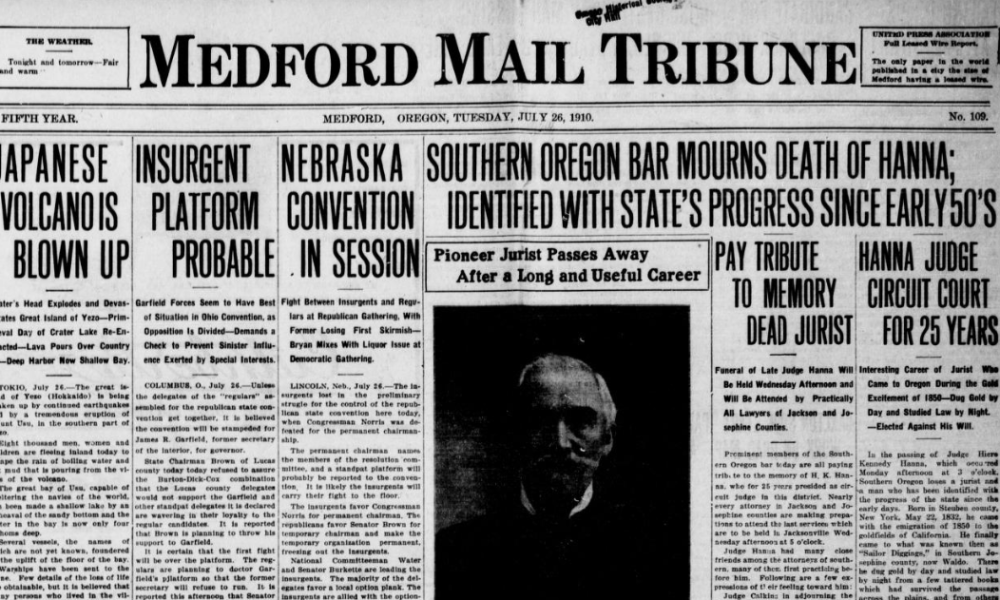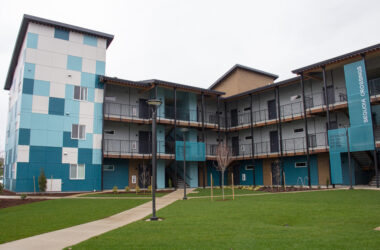Another source of local news in Oregon went dark last week.
The demise of the Medford Mail Tribune might not seem a matter for your attention.
It is.
Across the state and country, local news prepared by trained professionals is ever harder to come by.
Replacing the work of journalists who work to be objective and accurate are two other sources. One is social media, where people claim authority they don’t deserve.
The second is government. Those who run city and county government and state agencies are increasingly developing their own Facebook pages and even newsletters. While those provide useful information, no citizen should expect government to tattle on itself. You’ll get the good news only.
The shift is meaningful for people who care about their communities.
You just don’t know as much about what is happening. You don’t have journalists wading through streams of information to find what’s relevant and important for you.
The Medford shutdown is a true shocker. The Mail Tribune served one of the largest population areas in Oregon. The paper traces its roots back more than a century. And it was the first newspaper in Oregon to win a Pulitzer – for holding corrupt politicians accountable.
In the Salem area not long ago, weeklies in Silverton and Stayton were shut down.
“A lack of local news creates a news vacuum often filled with national news and biased social media, leaving some of Oregon’s most diverse and productive communities unheard.”
-State Rep. Khanh Pham
For the rest of us in Oregon journalism, it’s a sobering time. All of us have to consider how well we truly serve the public interest. Just putting out a newspaper or a web story isn’t enough. The news has to reflect the community – and all the people in it. It can’t be elitist. It can’t be sensational.
But those sorts of internal audits don’t mask what’s happening – too many people believe they can get by without an independent, local source of news. That’s why they don’t subscribe. That’s why businesses have taken their advertising elsewhere.
But the Medford moment calls for another, broader reckoning in Oregon.
Last fall, the Agora Journalism Center issued a ground breaking report assessing news in Oregon. The center is part of the University of Oregon’s School of Journalism and Communication. The authors, Regina Lawrence and Andrew DeVigal, called for action not to preserve profits for journalists, but to arrest the erosion of a key tool of democracy.
“The evidence is increasingly clear that the civic health of communities is tied to the fate of local news. Quality, accessible local news truly is a public good,” Lawrence wrote in a recent column. She is associate dean of the journalism school.
She cited reports showing absence of local news sources can mean less effective government. She quoted one recent book that found, “A robust local news media by no means ensures good government, its absence almost guarantees worse government.”
This conversation about the public good may have a public launch pad at the Oregon Legislature now convening in Salem.
State Rep. Khanh Pham, a Democrat from Portland, has put forward one solution – provide tax credits to Oregonians who support local news. Joining her as chief sponsors are Rep. Jules Walters, Rep. Ben Bowman and Sen. Sara Gelser Blouin.
Pham has long been involved in civic affairs, keying in on equity and justice, particularly in environmental matters.
Her legislation – House Bill 2605 – would “provide public funding to bolster local journalism,” according to her issue brief.
“A lack of local news creates a news vacuum often filled with national news and biased social media, leaving some of Oregon’s most diverse and productive communities unheard and weakening peoples’ sense of community connection,” her brief says.
She’s proposing the Local News Support Tax Credit so taxpayers could get a credit on their state taxes for subscriptions and contributions. She also wants to fund creation of a “civic information consortium” and make grants to the Agora Journalism Center and the Fund for Oregon Rural Journalism, based in Bend.
Asking legislators to step up to support local news may be a big ask. After all, it’s the local press that holds legislators accountable and not always in flattering ways.
But as Pham notes, this really isn’t about journalism. This is about the future good of government and civic life in Oregon.
Her proposal ought to trigger honest conversations about the fate of civic information. At the same time, this is also opportunity for my colleagues at newspapers, digital operations and other news sources to do an assessment as well: Can we do better with what we do have?
I’m be interested in your views and, if there’s interest, I’ll round up the most compelling comments and share in a future column.
But remember – this is about preserving and making better the state we all love.
Contact Editor Les Zaitz: [email protected]
Correction: This story was updated to reflect the correct spelling of Khanh Pham’s and Gelser Blouin’s names. Salem Reporter regrets the error.

Les Zaitz is editor and CEO of Salem Reporter. He co-founded the news organization in 2018. He has been a journalist in Oregon for nearly 50 years in both daily and community newspapers and digital news services. He is nationally recognized for his commitment to local journalism. He also is editor and publisher of the Malheur Enterprise in Vale, Oregon.










